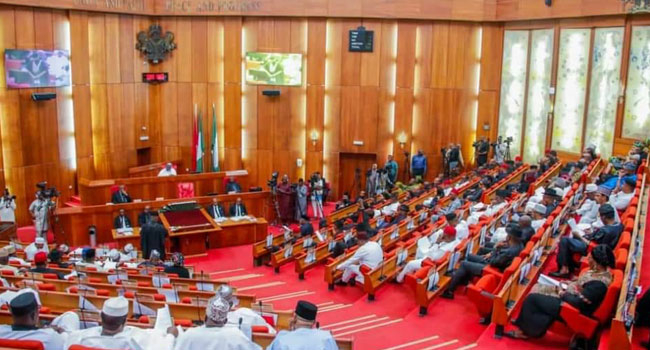- The Senate has proposed the unbundling of the Independent National Electoral Commission (INEC) to enhance its efficiency and effectiveness in election preparation and conduct.
- The Senate suggested that such a strategy could serve as a framework for legislative action in the security sector.
The next general elections are scheduled for 2027, and the Senate has announced that it would change the Electoral Act to require the electronic transmission of results.
Additionally, the red chamber has suggested posting results sheets and polling unit-level data utilised at various stages of result compilation in order to enable diaspora voting, at least for presidential elections.
Senators claim that this is being done to encourage more people to vote.
Following its retreat in Ikot Ikpene, Akwa-Ibom State, the Senate revealed this in a communiqué.
The Senate also proposed the unbundling of the Independent National Electoral Commission (INEC) to improve its efficiency and effectiveness in the preparation and conduct of elections.
The communiqué reads: “Relating to the use of technology in elections, remove the ambiguity evident in Section 64 of the EA22. Also, make electronic transmission of results mandatory from the next general elections in 2027, including the uploading of polling unit-level results and result sheets used at different levels of result collation.
“Introduce diaspora voting, at least for presidential elections, to enable citizens to vote, especially those on essential service abroad, such as military, paramilitary, and other security personnel abroad, Embassy staff, and other citizens.
“Relating to political parties; stipulate sanctions for failure to submit the register of party members not later than 30 days before the date of party primaries, congresses, or conventions in relation to Section 77(3) EA22, which the political parties have observed in the breach in the 2023 elections without penalty.”
The 10th Senate further noted that it was time to develop and enact a comprehensive national security strategy that outlines the nation’s security objectives, threats, and policy priorities.
The Senate added that such a strategy could serve as a guiding framework for legislative action in the security sector.










Discussion about this post